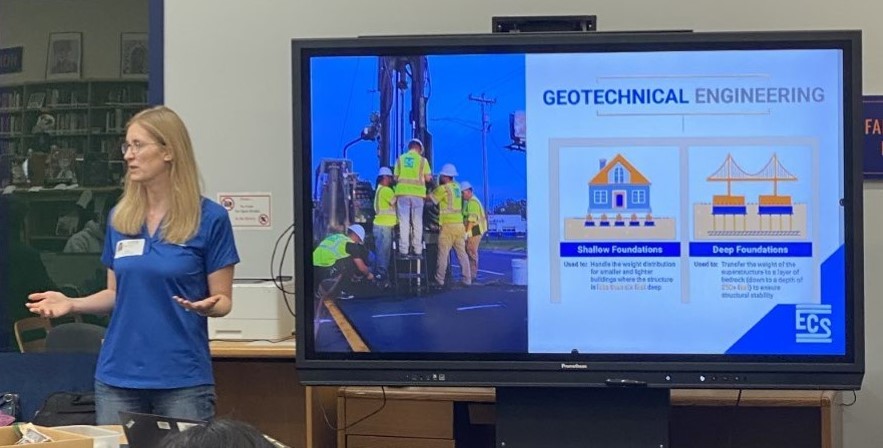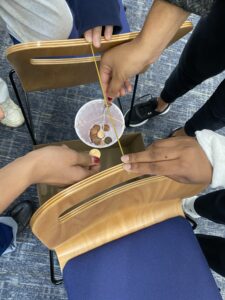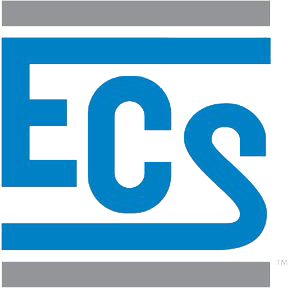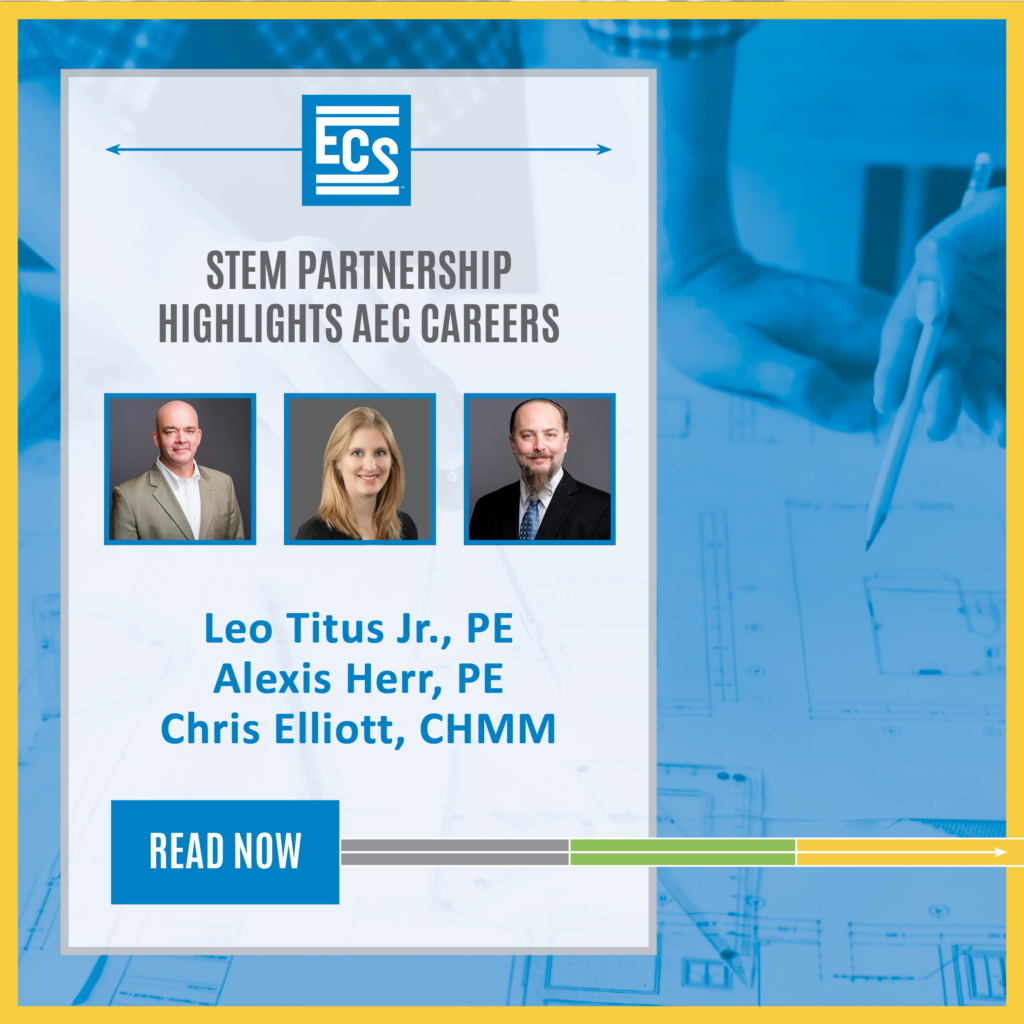In 2023, ECS’ Chantilly, VA, office partnered with Cognia, a nonprofit, nongovernmental organization providing schools with accreditation and certification services. These services help educators adopt or expand quality STEM practices in existing curriculum. ECS’ partnership with Cognia enables experienced professionals to lend time and expertise to support teachers and build awareness about careers in engineering for students.

Integrating STEM practices
The first collaboration helped a Chantilly-area high school prepare for the Cognia certification process. ECS employees worked with teachers to integrate STEM practices in their lesson plans. Our experts also led presentations and hands-on activities for students.

STEM practices aren’t limited to math and science. Introducing the scientific method to non-STEM classes was eye-opening for teachers. “We discussed with the art teachers how the scientific method applies to mixing paints,” says Chris Elliott, CHMM, a Due Diligence Department Manager and Environmental Principal for ECS. “We’re simply applying structure to existing lesson plans. The paint activity naturally lends itself to the experimental process. Students form a hypothesis, mix paints and observe the outcome.” When done well, building the scientific method into a lesson isn’t overt. It’s meant internalize the STEM way of thinking and build critical-thinking skills.
When students take part in hands-on exercises with professionals, it generates discussion about real scenarios rather than hypotheticals. Alexis Herr, PE, a Vice President and Principal Engineer at ECS’ Chantilly office, supported the ECS/Cognia partnership at the high school. “I worked with the applied math department on a spaghetti-bridge project,” she recalls. “As a structural engineer, this was right up my alley.” Alexis was able to introduce an accurate, structural-design approach to the spaghetti project. This helped students think critically about material strength, loads and other forces. She also led teachers on a tour of her office’s materials-testing facility to spotlight connections between the bridge activity and real projects.
Influencing future engineers
The purpose of the ECS/Cognia partnership is to provide professional guidance to educators during the accreditation process. Introducing kids to careers in the AEC industry is an added benefit. “Civil engineering wasn’t on my radar in high school,” says Leo Titus, PE, Chief Operating Officer for ECS. “It wasn’t until my junior year of college that I decided to pursue civil engineering. It was after graduation that I dug into geotechnical engineering. I didn’t know it was a career. Generating awareness is part of why ECS is excited to partner with Cognia.”
Research shows volunteer programs boost productivity, increase employee engagement and improve hiring and retention. Volunteerism generates a sense of purpose and promotes mental and physical wellbeing—even more so when there’s a personal connection. Alexis says, “I have family in a school district where Cognia is conducting outreach. Anything I can do to support this district is something I hope will pay off for my family,” she says.
It’s difficult to gauge long-term influence from this first certification experience with Cognia because those students haven’t graduated yet. However, ECS supports continued collaboration and is discussing partnerships with schools in Virginia and North Carolina as they work towards certification.
Programs like these are great for the community and rewarding for employees. Connecting with children of all ages is how we plant seeds for future engineers, scientists and geologists. These partnerships also great for the architecture, engineering and construction (AEC) industry because they generate opportunities to bring in other experts and build more awareness. We look forward to leveraging our network to introduce children to careers in engineering and related industries.

